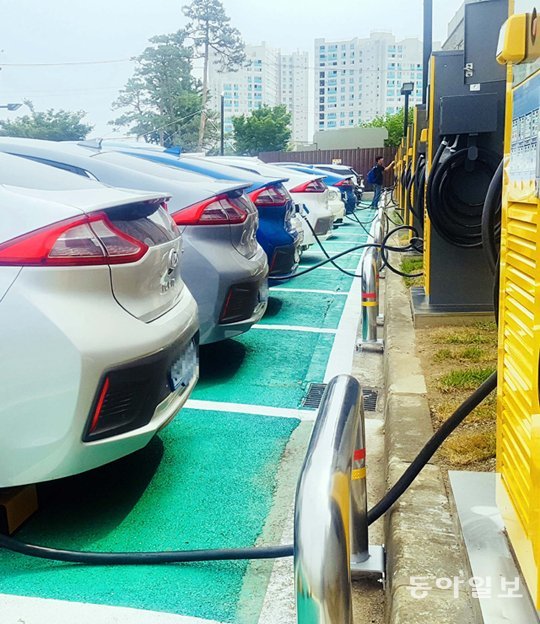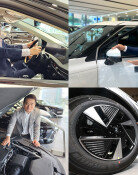Korean scientists lead researches for super-fast battery recharging technology
Korean scientists lead researches for super-fast battery recharging technology
Posted August. 31, 2018 07:29,
Updated August. 31, 2018 07:29

Battery is always a problem when using a smartphone. It would be nice to have a high-capacity battery but it is heavier and takes longer to recharge. Latest smartphone models and tablet computers last about seven to eight hours in continuous use on a single charge. Electric cars can run 200 to 300 kilometers on a single charge. But the current battery technology has reached its limit.
In order to further enhance recharging, a new battery technology is required. First, scientists and engineers are conducting research projects to further improve the existing battery technology. Attracting attention are batteries based on the widely used lithium-ion batteries. Lithium-Sulphur and lithium-air batteries are among them. Compared with lithium-ion batteries, they are expected to have up to 10 times the capacity and be two to three times faster to recharge.
Korean scientists are making spectacular achievements in the research for improving batteries. One of the biggest drawbacks of lithium-sulfur batteries is that they deteriorate rapidly just after dozens of recharge cycles. In May, a research team led by Kim Hee-tak, a professor of chemical and biomolecular engineering at the Korea Advanced Institute of Science and Technology (KAIST), developed a technology to address the issue by making the internal cells in the shape of a donut. With the technology, lithium-sulfur batteries can be recharged in up to 600 cycles, similar to the life span of lithium-ion batteries. In April, a team led by Cho Kyeong-jae, a professor of materials science and engineering at University of Texas at Dallas, developed a method to increase recharging cycles by adding molybdenum. The technology is expected to be in commercial use between 2020 and 2030.
Kang Jeong-ku, a professor of materials science and engineering at the KAIST, said earlier this week that his research team developed a "supercapacitor" that can be recharged over 100 times faster and have dozens of times more capacity than ordinary lithium-ion batteries. Theoretically, the technology can fully recharge a smartphone within a minute, and the battery maintains its capacity even after 30,000 recharging cycles. The team developed the highly efficient supercapacitor by using porous metal oxide nanoparticles. If applied to electric cars, the technology can recharge one within a several minutes. "The high-capacity and high-output traits will contribute to the commercialization of new concept energy storage devices," Kang said.
enhanced@donga.com







